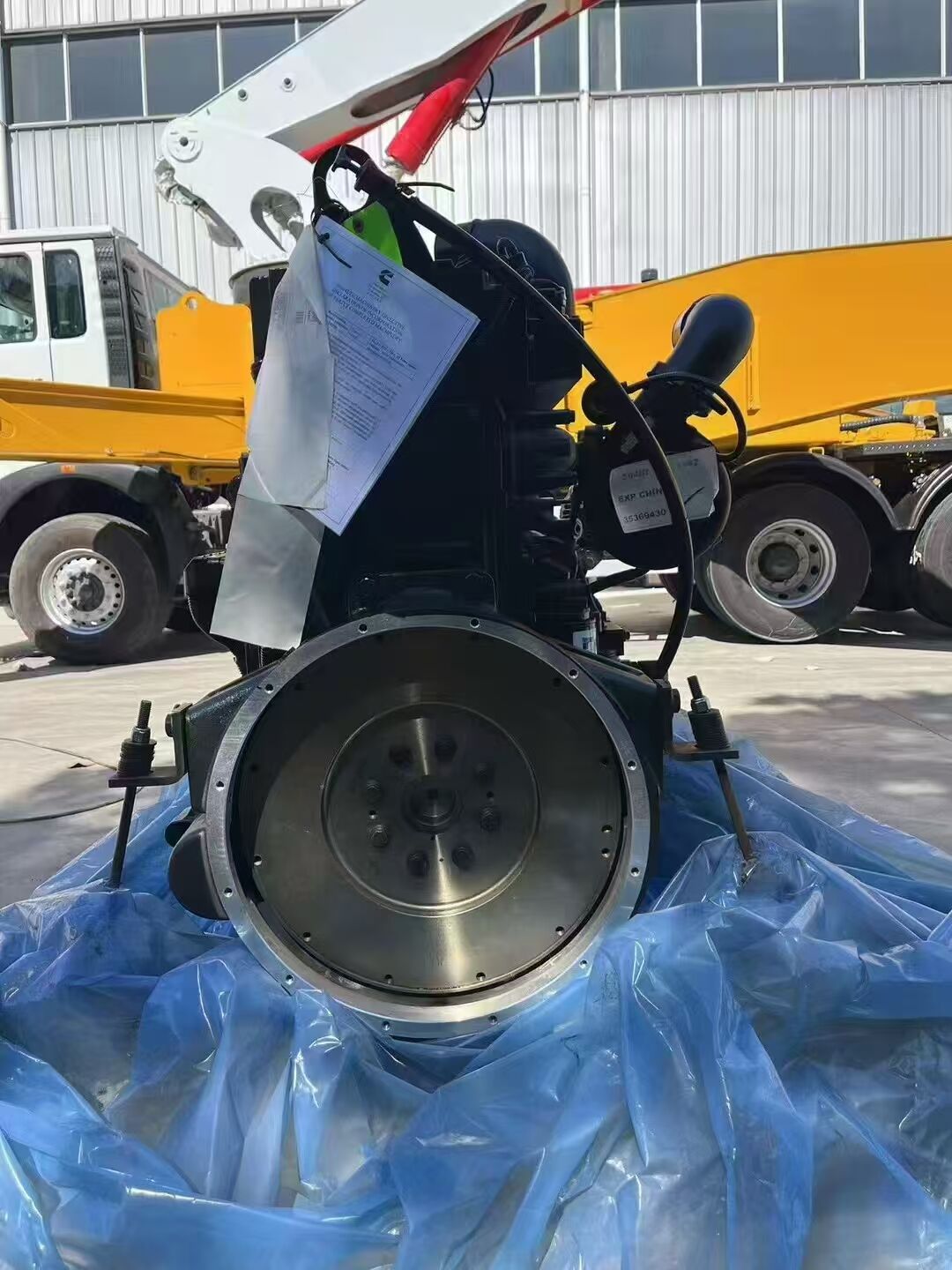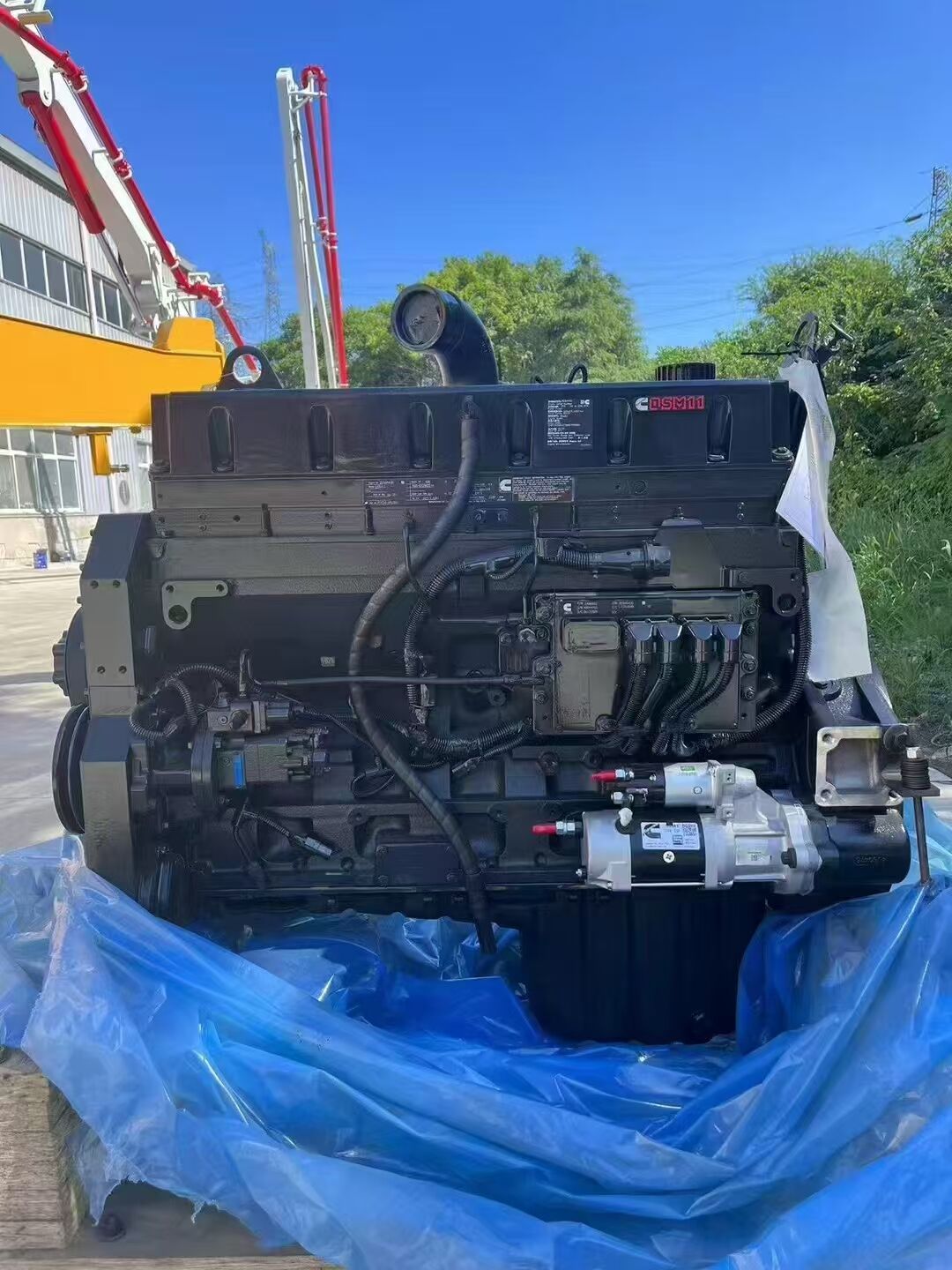Maximizing Performance: Tips for Maintaining Your Cummins Engine
Introduction to Cummins Engine Maintenance
A Cummins Engine is widely recognized for its reliability, durability, and ability to perform under demanding conditions. These engines power trucks, buses, construction machinery, marine vessels, generators, and agricultural equipment across the globe. However, like all high-performance machines, a Cummins Engine requires consistent maintenance to ensure that it continues to operate at its best. Proper maintenance not only prolongs the life of the engine but also improves efficiency, reduces downtime, and helps owners avoid costly repairs. By following essential tips and best practices, operators can maximize the performance of their Cummins Engine and protect their investment.
Understanding the Importance of Regular Maintenance
Why Preventive Care Matters
Preventive maintenance is more than just a checklist; it is a proactive approach that ensures potential issues are identified and resolved before they cause major failures. For a Cummins Engine, preventive care means addressing common wear areas such as fuel systems, lubrication, air intake, cooling, and exhaust components. Engines that are consistently maintained typically last longer, run more efficiently, and retain higher resale value.
Balancing Cost and Longevity
Regular servicing requires investment, but the cost is far lower than dealing with major repairs or unexpected breakdowns. For businesses relying on fleet vehicles or heavy-duty equipment, a properly maintained Cummins Engine translates into fewer disruptions, consistent performance, and significant long-term savings.
Fuel System Maintenance
Using Quality Diesel
The performance of a Cummins Engine is closely tied to the quality of fuel used. Contaminated or low-grade diesel can lead to clogged injectors, inefficient combustion, and excessive wear. Always sourcing clean, high-quality fuel minimizes the risk of deposits and improves overall efficiency.
Fuel Filters and Injectors
Replacing fuel filters at manufacturer-recommended intervals is crucial. Clogged filters restrict fuel flow, leading to power loss and reduced efficiency. Injectors should also be inspected periodically, as faulty injectors can cause poor atomization, increased emissions, and uneven combustion.

Lubrication and Oil Management
Choosing the Right Oil
Lubrication is the lifeblood of any Cummins Engine. Using the correct oil type and grade ensures that moving parts remain protected under varying loads and temperatures. Cummins provides specific oil recommendations tailored to different engine series, and using alternatives may compromise longevity.
Oil Change Intervals
Regular oil changes prevent sludge buildup, reduce friction, and ensure smooth operation. Monitoring oil levels frequently is also essential, as excessive oil consumption may indicate worn components that need attention.
Monitoring Oil Pressure
Maintaining proper oil pressure is critical. Low oil pressure can signal issues with pumps, leaks, or bearing wear. Installing sensors or regularly checking gauges helps prevent catastrophic engine damage.
Cooling System Care
Preventing Overheating
Overheating is one of the most damaging conditions for a Cummins Engine. Maintaining proper coolant levels, checking for leaks, and ensuring radiator cleanliness are simple yet effective practices.
Regular Coolant Changes
Coolant degrades over time, losing its ability to prevent corrosion and regulate temperature. Scheduled coolant changes, along with flushing the system, ensure that the cooling system continues to protect the engine.
Inspecting Water Pumps and Thermostats
Key components such as water pumps and thermostats must be inspected for wear. Malfunctioning parts can compromise coolant flow and lead to overheating.
Air Intake and Turbocharger Systems
Air Filter Maintenance
Engines require a clean air supply for efficient combustion. Dirty or clogged air filters restrict airflow, reduce performance, and increase fuel consumption. Inspecting and replacing filters on schedule is a simple but vital task.
Turbocharger Care
Many Cummins Engine models rely on turbochargers for improved performance. Proper lubrication is essential to avoid premature turbo failure. Avoiding extended idling, which can stress turbochargers, also helps extend their life.
Exhaust and Emission Systems
Maintaining the Exhaust Gas Recirculation System
For engines equipped with EGR systems, soot buildup and clogging can reduce efficiency and increase emissions. Regular cleaning and inspection prevent these issues.
Diesel Particulate Filters
Modern Cummins engines often include diesel particulate filters. Monitoring regeneration cycles and performing manual cleaning when necessary ensures compliance with emission standards and prevents blockages.
Electrical and Sensor Systems
Battery and Alternator Health
A healthy electrical system is vital for reliable starting and consistent operation. Regularly checking batteries and alternators ensures they provide adequate power.
Monitoring Sensors
Modern Cummins engines rely heavily on sensors to regulate fuel delivery, emissions, and temperature. Faulty sensors can cause rough running or trigger error codes. Regular diagnostics help identify and replace failing components promptly.
Operational Best Practices
Reducing Idle Time
Extended idling causes fuel waste, carbon buildup, and oil contamination. Operators should minimize idling whenever possible to protect engine components and improve efficiency.
Warm-Up and Cool-Down Procedures
Allowing a Cummins Engine to warm up before heavy use ensures that oil and coolant reach optimal operating temperatures. Similarly, letting the engine idle briefly before shutdown allows the turbocharger to cool, preventing heat damage.
Load Management
Avoiding overloading protects the engine from excessive strain. Consistently operating within recommended load limits ensures that the Cummins Engine delivers reliable performance without premature wear.
Importance of Genuine Parts and Professional Service
Genuine Cummins Parts
Using genuine Cummins parts for repairs and replacements ensures that components meet factory specifications. Aftermarket alternatives may appear cheaper but often fail to match the precision and durability of genuine parts, risking long-term reliability.
Certified Service Centers
Relying on certified Cummins service centers provides access to expert technicians who understand the unique requirements of these engines. Professional service ensures that maintenance is carried out correctly and that warranties remain intact.
Long-Term Benefits of Proper Maintenance
A well-maintained Cummins Engine not only performs more efficiently but also provides greater uptime and lower total cost of ownership. Fleet operators benefit from reduced downtime and higher productivity, while individual owners enjoy confidence in the reliability of their vehicles or machinery. In addition, consistent maintenance improves resale value by demonstrating that the engine has been properly cared for throughout its lifespan.
Conclusion
Maximizing the performance of a Cummins Engine comes down to consistent, proactive maintenance practices. From fuel systems and lubrication to cooling, air intake, and emissions, each component plays a vital role in ensuring reliability and longevity. Operators who prioritize preventive care, use genuine parts, and follow manufacturer guidelines can expect their Cummins Engine to deliver outstanding performance for years to come. For both businesses and individual owners, the investment in proper maintenance is repaid many times over through reduced costs, minimized downtime, and enhanced efficiency.
FAQ
How often should I service my Cummins Engine?
Service intervals depend on the model and application, but following the Cummins maintenance schedule in the owner’s manual is the best approach.
What type of oil should I use in my Cummins Engine?
Always use the oil type and grade recommended by Cummins for your specific engine model to ensure optimal lubrication and protection.
How do I know if my fuel injectors need maintenance?
Signs include poor fuel economy, rough idling, difficulty starting, and excessive exhaust smoke. Regular inspection can confirm their condition.
Can excessive idling damage my Cummins Engine?
Yes, extended idling leads to carbon buildup, wasted fuel, and increased wear on engine components.
How do I prevent overheating in my Cummins Engine?
Maintain proper coolant levels, flush the radiator periodically, and ensure water pumps and thermostats are functioning correctly.
Why should I use genuine Cummins parts?
Genuine parts are manufactured to exact specifications, ensuring compatibility, durability, and warranty protection.
What role does the turbocharger play in a Cummins Engine?
The turbocharger boosts performance by increasing airflow into the engine, improving combustion efficiency and power output.
How do I extend the life of my Cummins Engine?
Follow regular maintenance schedules, minimize idling, use quality fuel and oil, and address small issues before they escalate.
What are common warning signs of engine trouble?
Unusual noises, smoke, poor fuel economy, overheating, or error codes indicate potential issues requiring attention.
Where can I find professional service for my Cummins Engine?
Authorized Cummins service centers provide certified technicians and access to genuine parts, ensuring reliable maintenance and repair.
Table of Contents
- Maximizing Performance: Tips for Maintaining Your Cummins Engine
- Introduction to Cummins Engine Maintenance
- Understanding the Importance of Regular Maintenance
- Fuel System Maintenance
- Lubrication and Oil Management
- Cooling System Care
- Air Intake and Turbocharger Systems
- Exhaust and Emission Systems
- Electrical and Sensor Systems
- Operational Best Practices
- Importance of Genuine Parts and Professional Service
- Long-Term Benefits of Proper Maintenance
- Conclusion
-
FAQ
- How often should I service my Cummins Engine?
- What type of oil should I use in my Cummins Engine?
- How do I know if my fuel injectors need maintenance?
- Can excessive idling damage my Cummins Engine?
- How do I prevent overheating in my Cummins Engine?
- Why should I use genuine Cummins parts?
- What role does the turbocharger play in a Cummins Engine?
- How do I extend the life of my Cummins Engine?
- What are common warning signs of engine trouble?
- Where can I find professional service for my Cummins Engine?

